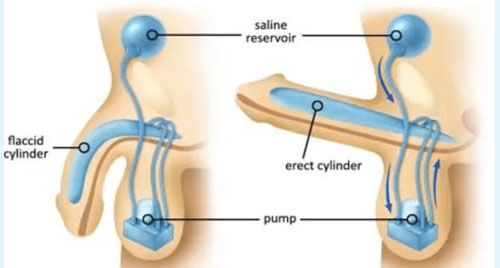- Clinic:
- 0733 945 717
- 0739 434 212

When sex is too painful, or impossible
August 29, 2022
Why We hate Doctors
November 25, 2022Men’s nightmare: Erectile Dysfunction

Erectile dysfunction is defined as the persistent inability to attain or maintain penile erection sufficient for sexual intercourse. Erectile dysfunction is sometimes called "impotence," although that's an older term that doctors aren't using.
Disorders such as ED and female sexual dysfunction are increasingly becoming important as a result of the aging Kenyan population and newer treatment therapies.Successful treatment of ED has been demonstrated to improve sexual intimacy and satisfaction, boost the quality of life, and relieve symptoms of depression.
What causes ED?About 80 per cent of cases are believed to have an organic cause, the rest being linked to mental or emotional status.ED is mostly associated with diseases, stress, trauma (such as spinal cord injury, pelvic and prostate surgery), or drug adverse effects. This interferes with the coordinated psychological, neurological, endocrine, vascular, and muscular factors necessary for normal erections.
Risk factors?Increasing age, smoking, obesity, and sedentary lifestyle. The prevalence of erectile dysfunction also increases in people with diabetes mellitus, hypertension, heart disease, anxiety, and depression
How does it occur?ED occurs when the blood vessels that carry blood to the penis narrow and don't allow the increased flow needed for a full erection.This is caused by the hardening of the arteries, high blood pressure, high cholesterol levels and long-term smoking.Nerve Problem also cause ED by During a normal erection, signals from the brain and spinal cord are sent through nerves to the blood vessels in the pelvis and the genitals. These signals cause the blood vessels to widen and allow the penis to fill with blood Damage to the nerves may be caused by stroke or spinal cord injury, or may occur during prostate surgery or other types of surgery.
Diabetes and long-term heavy alcohol use can also damage the nerves' ability to send signals and become erect.
What are the hormonal problems?Men who don't make enough testosterone (male hormone) may have problems achieving an erection. However, low hormone levels more commonly affect a man's interest in sex (libido) rather than the ability to have an erection. Other hormone abnormalities may also cause erection problems.
Can some types of medicines cause ED?Many medicines can affect the ability to have sex. Medicines can decrease the ability to have an erection. Medicines can also affect the level of interest in sex and the ability to have an orgasm.
Medicines used to treat high blood pressure, heart disease, depression and heartburn are among the most common medicines that interfere with the ability to have an erection.
What are the Psychological Problems that cause ED?Depression, anxiety or stress may also cause problems with erectile function. In some men, not feeling satisfied with their sexual function may lead to depression or other psychological symptoms.
How is ED treated?The most effective treatment depends on the cause of the erectile dysfunction. Lifestyle changes, such as quitting smoking, drinking less alcohol, reducing stress and strengthening relationships may improve erectile function. Adjusting regularly used medications and identifying and treating certain medical conditions may also improve erectile function. Pills to aid erectile ability, vacuum devices, and medication placed in the penis are additional treatment options available.
Take a fertility test today
